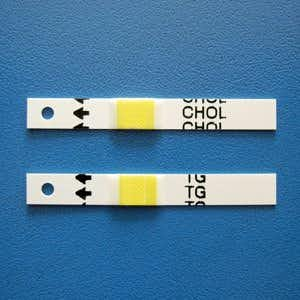
Elevated Low Density Lipoprotein cholesterol, or LDL, is widely recognized as an important risk factor for coronary heart disease. A new genetic study involving more than 650,000 participants over roughly seven decades demonstrates that high triglycerides are equally important (Ference et al, JAMA, Jan. 29, 2019).
What Is the Problem with High Triglycerides?
Triglycerides carry fat in the bloodstream from one part of the body to another. Obviously, you need some for the body to function. However, doctors have debated whether high triglycerides are an independent risk factor for heart disease.
The study published in JAMA concluded that people with genes that lead to lower triglycerides are less prone to heart disease. This suggests that reducing the level of triglycerides could be just as beneficial as lowering LDL cholesterol.
How Can You Lower High Triglycerides?
Eating fewer processed foods and simple carbohydrates is an effective strategy for lowering triglycerides. We received this question from a reader some time ago:
Q. I have slightly high cholesterol (230) but really high triglycerides (348). A friend of mine told me that when he took red yeast rice his cholesterol dropped 50 points, but his triglycerides rose.
How important are triglycerides anyway? How can I get them down?
A. High triglycerides (TG) have long been linked to an increased risk for heart attacks, though they don’t get the same attention as cholesterol. A 30-year study from Denmark involving almost 14,000 adults suggested that elevated TG may be more important than cholesterol when it comes to stroke risk (Varbo et al, Annals of Neurology, April 2011). This finding was particularly strong for women.
Although the American Heart Association considers TG levels up to 150 normal, the Danish study found the risk of stroke rose 20 percent when TG went above 90. Your level is high enough to be worrisome.
Eat More Fat to Lower Triglycerides?
Ways to lower triglycerides include: reducing carbohydrates, especially sugar and processed grains; taking fish oil; eating nuts; and losing excess weight. Red yeast rice, which contains natural statins, usually lowers triglycerides as well as cholesterol (Zhao et al, Circulation, Aug. 24, 2004). Research indicates that a diet lower in sugar but higher in fat lowers high triglycerides (Chiu et al, American Journal of Clinical Nutrition, Feb. 2016). Following a Mediterranean diet can also be helpful.
Some readers have found other ways to lower triglycerides.
Torrence wrote:
“I’m going to make a lot of people happy. I used to have very high Triglycerides. Then I found a way to control them and they have been PERFECT ever since.
“READY. Now you won’t believe this until you try it, but you are in for a big surprise…. IT DOES WORK!
“Here we go: EVERY DAY ADD 1/4 TEASPOON OF CINNAMON to whatever you eat for breakfast and watch the change. I have been doing this for some time now and when the doctor checks them they are PERFECT. And guess what, I eat all the foods that are supposed to raise them.
“If you don’t do it religiously, then don’t complain if it doesn’t work. EVERY DAY—–DO IT! Now if it REALLY doesn’t work for you, your system must be different, and I’m not to blame for that. GOOD LUCK!”
Cinnamon can keep blood sugar and insulin levels from soaring after a meal, and that helps keep triglycerides under control. It doesn’t make sense, though, to eat foods that can raise triglycerides. Such refined carbohydrates don’t help nutritionally. Moreover, cinnamon every day could add up. Unless it is pricey Ceylon cinnamon, that could be bad news for the liver.
DS has another suggestion for using cinnamon:
“We put a teaspoon of cinnamon in a small coffee filter and wad it up to put on top of the coffee grounds in our Chemex coffee pot. If we just throw the cinnamon on top of the grounds, it clogs the Chemex filter and the water doesn’t flow through. We don’t notice the taste, but others do. In any case, with this practice and our low carb diet we keep our triglycerides lower than our HDL cholesterol.”
Todd W. has this advice:
“Find out if you have a genetic lipid disorder. I have familial hyperlipidemia type 3 or 4 ( been a long time since diagnosis). That clarifies treatment strategies.”
BPD adds this:
“If your triglycerides are high, have your doctor check for diabetes. Even if your blood sugars and A1C (the 3 month average test) are normal, insist that your doctor schedule you for a glucose tolerance test. This is especially true if your appetite is out of control and you have gained weight. This was the case with me. Again, my regular blood sugar and A1C (the three month average test) were normal. I would not have found out that I was diabetic if it were not for an excellent endocrinologist.”

